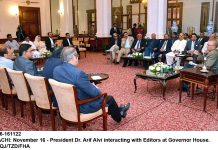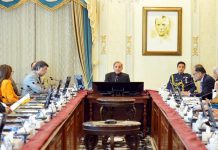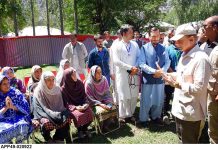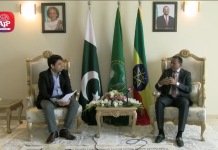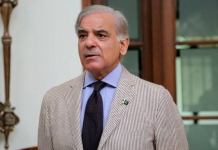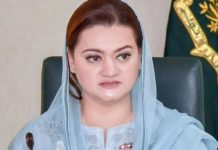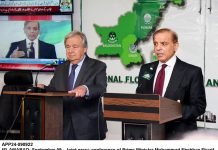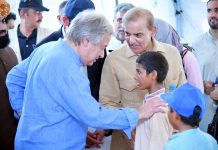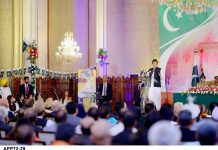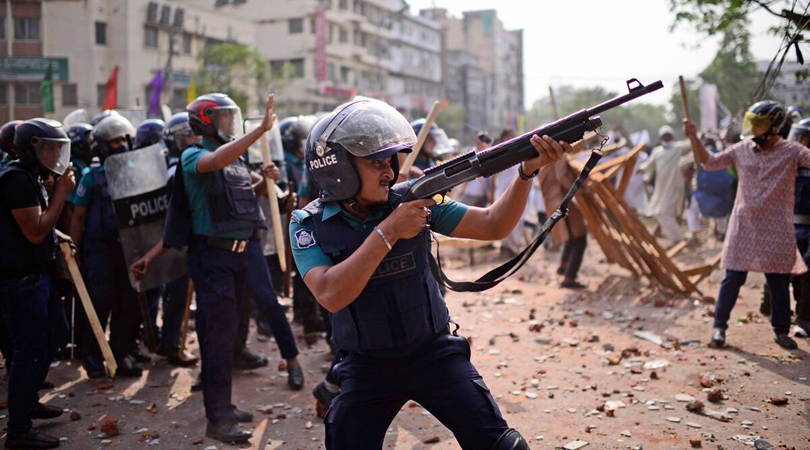
“We had to fire teargas and rubber bullets to disperse them as they entered a police station and carried out extensive vandalism,” Rafiqul Islam, the police official told Reuters, referring to protesters.
Modi arrived in the capital Dhaka for a two-day visit to celebrate the 50th anniversary of Bangladesh’s independence.
The protesters in Chittagong were from the Hefazat-i-Islam Bangladesh, a group opposed to the visit of Modi, who critics say has been pushing a Hindu-first agenda in India.
Mohammad Alauddin, another police official in Chittagong, said that eight people were brought to a hospital in the city with gunshot wounds, of which four succumbed to their injuries
Protests also flared in the capital Dhaka, where dozens of people, including two journalists, were injured in clashes with police, witnesses said.
The protests have continued since Thursday when police fired rubber bullets and tear gas at hundreds of mainly student demonstrators. Police had said the protests got out of hand as demonstrators marched in Dhaka, with many throwing rocks and stones at officers, injuring at least four. “We fired tear gas and rubber bullets to disperse them. There were 200 protesters. We have also arrested 33 people for violence,” police official Syed Nurul Islam had told AFP.
A spokesperson for the march had said 2,000 mainly student protesters joined the demonstration.
In Islamabad, Prime Minister Imran Khan Friday congratulated his Bangladeshi counterpart, Sheikh Hasina Wajed, on the 50th Independence Day of Bangladesh and invited her to visit Pakistan.
In a statement, the PM congratulated Hasina on behalf of the Pakistani people and government. He also emphasised that Pakistan values its ties with Bangladesh. Imran Khan said that the relations between the two countries are based on the promotion of lasting peace, security and prosperity in the region. He also told the Bangladeshi PM that Pakistan wants to improve ties with Dhaka. “I think the destinations of the people of both the countries are connected with each other,” wrote PM Imran in his letter. He added that if the Bangladeshi premier decides to visit Pakistan, it would open a new chapter in the ties between the two nations.
In December last year, Pakistani High Commissioner in Dhaka Imran Ahmed Siddiqui had met with Bangladeshi Prime Minister Sheikh Hasina Wajid in a bid to strengthen ties between the two countries. A statement issued by the High Commission had said Sheikh Hasina had expressed ‘good wishes’ for Pakistan after she was informed that the country held the Bangladeshi leadership and people in high esteem and affection. The statement had said the Bangladeshi premier welcomed Siddiqui and assured him of full support in the discharge of his official duties. It added that the high commissioner conveyed a message of goodwill and friendship from PM Imran Khan, which Sheikh Hasina “reciprocated with her greetings and good wishes for the leadership of Pakistan”. “The two sides agreed to further strengthen the existing fraternal relations between the two countries,” the high commission had said. “The meeting was held in a very cordial environment. ”
The meeting and the statement had come as part of PM Imran Khan’s initiative to improve rocky relations between the two countries. In July last year, he had underscored the importance Pakistan attaches to closer ties with Bangladesh during a telephonic conversation with Sheikh Hasina.

